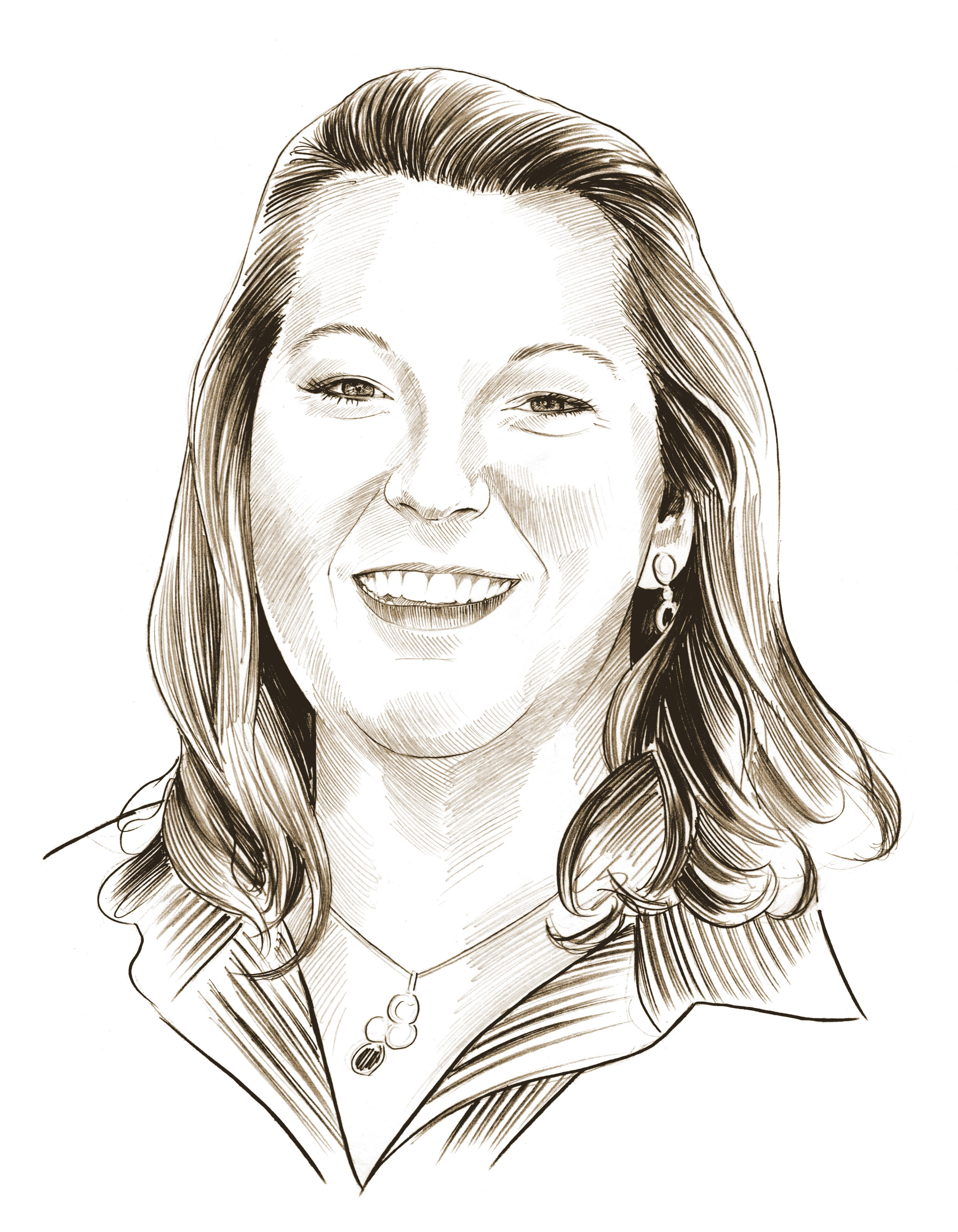Editor’s Note: AFN’s Lauren Stine collaborated with Successful Farming’s Laurie Bedord to interview Lynn Rohrscheib about her farm and use of technology.
One of Lynn Rohrscheib’s favorite memories of growing up on her family’s multigenerational farm involves her Radio Flyer wagon.
“Along with Rohrscheib Farms, my family owns and operates C&R Ag Supply, Inc., a custom application business that sells seed, chemicals, and fertilizer,” says the Fairmount, Illinois, farmer. “When I was five, I’d load up my wagon with products for farmers to pick up.”
By the time she was 12, her red wagon had been replaced by a grain cart to haul her first crop. “I was in charge of 30 acres where I grew corn and soybeans for my 4-H and FFA projects,” she says. “I officially received my first grain check that year.”
Today, you’ll find the 36-year-old still hauling seed, chemicals, and fertilizer for the custom application business. She also helps with day-to-day operations, handles human resources, and manages the farm’s precision farming technology use.
What are your main drivers when adopting a technology?
There are five key things we look at: ease of use, functionality, adaptability, price, and service after the sale. We normally give a technology one to two years. We know there will be glitches in year one, but if by year two it’s still not working well or isn’t easy to use, it’s shelved.
Which technologies have been truly disruptive on your farm?
In the 1990s, variable rate was disruptive when we began using it on our sprayers and spreaders. We also were part of testing John Deere’s GreenStar yield and mapping system. When we brought the card in from the combine, we could get a map at the end of the day to see how well our fields yielded instead of waiting to add up all of the elevator or scale tickets. Because it gave us a much quicker reference on how well our fields performed, it was great technology at the time.
We also tested and, ultimately, adopted technology that lets us apply nitrogen in taller corn with a nitrogen bar on our sprayer. This allows us to make an application when the crop really needs it.
Recently, we’ve been using Climate FieldView. For years, this system is what farmers have been asking for – a platform that is versatile across all pieces of equipment. It lets us collect, store, and see critical field data; monitor and measure the impact of agronomic decisions; and build fertilizer and seed recommendations to manage field variability. Since our employees range in age from 24 to 77, its ease of use is an absolute plus. It is constantly evolving to meet our needs.
| Background:
After receiving a bachelor of science degree in plant and soil sciences from Southern Illinois University, Lynn Rohrscheib returned to her family’s Illinois farm in 2005. Today, she farms with parents Vernon and Mary and sister Stacey Rickard. They farm around 7,000 acres of corn, soybeans, and wheat. Rohrscheib is active in Illinois Farm Bureau, Illinois Soybean Association, and the United Soybean Board. |
How do you define sustainability?
We have two definitions. My family has been farming for over 100 years. That’s sustainability, according to my father. My view is the same, plus the fact that we have incorporated different farming practices to grow the best crops we can while leaving our soil better than it was when we first started farming. Some of those practices include planting cover crops, building waterways, and creating habitat for waterfowl and butterflies.
What do you see as your biggest challenge today?
The biggest challenge is being able to mitigate risks from unforeseen political factors. Trying to strategically plan for the duration of these difficult times is getting harder. Farmers have had to cut budgets as commodity prices have fallen, and there isn’t a lot of fat left to cut. No farmer wants to be the generation to call it quits. But the longer the trade war and lack of trade agreements continue, more farmers will become collateral damage.
Finish this sentence: Farming is . . .
Farming is a humbling profession. It is also one of the most stressful. My grandparents and parents ingrained in me that while there will be struggles, there will also be rewards. It’s how you persevere during the difficult times that will help you make it through. When I see that small seed mature and grow into an amazing crop, all of the blood, sweat, and tears are worth it.





